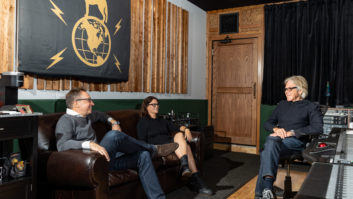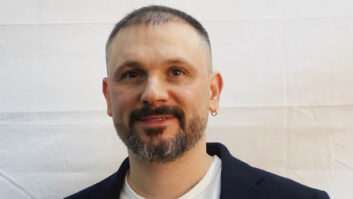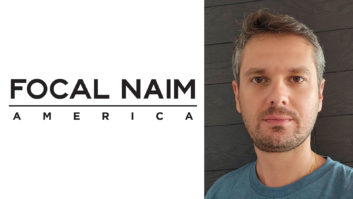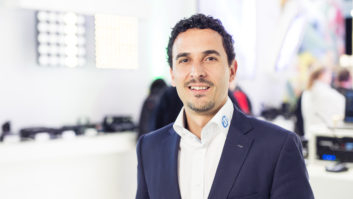
The studio business has evolved considerably since the late Nineties, and so has the way facilities do business. Murat Aktar knows a bit about that, having spent the last 25 years as president/ partner of legendary mastering studio Sterling Sound. It’s also what led him to co-found studio administrative software company Studium 33 in 2017. As a result, that company’s offerings were created based on decades of hands-on, real-world experience running studios.
It’s a long way from his earliest days in the recording biz; starting out as a commercial leasing agent/broker in Southern California and Chicago, in 1990 Aktar co-founded Absolute Audio, a mastering facility located in the heart of New York City’s Times Square. Seven years later, he left to orchestrate a roll-up of the mastering business in New York. Forming a partnership with renowned mastering engineers Tom Coyne, Ted Jensen and Greg Calbi, they bought Sterling Sound and built a new, massive facility in Chelsea Market. While he had teamed with some of the best-known pros in the field, Aktar soon discovered that the studio’s administration needed to become just as top-tier.
“Mundane as it sounds, I love the elegance of really sharp administration and think it is way underestimated as a competitive edge,” said Aktar. “As ‘the business partner,’ my focus has always been the commercial side of Sterling’s operation: booking, administrative, facilities and financial. In 1998, all bookings were done on paper calendars, and session sheets were handwritten. Each booking manager did things slightly differently; there was no consistency in how the rates were applied, the correspondence, or the business terms. It was incredibly hard to grasp the business without meeting with each of the bookers and sifting through a blizzard of session sheets.”
After multiple attempts to adapt existing commercial software to the studio’s operations, Aktar brought in software engineer Brian Lambert—who would later co-found Studium 33—to build an integrated scheduling system that included estimating, billing, file management and a communication platform specifically for Sterling Sound. It was then that Aktar saw the true difference dedicated studio management software could make.
View from the Top: Dave Morrison, IsoAcoustics
View From The Top: Romain Vet, Focal Naim America
“It took two years, but the result was extraordinary,” he recalled. “Overnight, our operations became sharper. The administrative work-load took 30 to 40 percent less effort, and our bookers were no longer ‘under siege’; they had time to speak with the clients. Response times for information requests dropped to almost instant. Invoices went out faster with far more detail, which improved cash flow. Internal communication of project details became instant and up to date. For the first time, I felt like I was running the business instead of reacting to it.”
While the original in-house system was the backbone of Sterling for 13 years, eventually it became outdated and needed to be replaced with more modern cloud architecture. Sensing an opportunity to bring their experience and methods to a larger community, Aktar and Lambert teamed up to form Studium 33 and create a cloud version of the application that could be licensed to recording studios worldwide and mastering studios outside the United States (Sterling retains exclusive rights for a mastering house in the U.S.).
“We are a software company, but our value isn’t from technical wizardry,” said Aktar. “It’s from domain expertise—the grinding work of sitting next to booking managers, profiling every step in their day, looking for repeatable transactions that we can automate and places we can eliminate keystrokes.” Ensuring that information is instantly accessible and onhand to provide context is crucial to studio efficiency, he noted: “Every time your six-figure studio manager is unavailable to take a new studio booking call because they are bogged down with manual admin, you as an owner are not deploying your resources efficiently.”
As a result, Studium 33 uniquely finds itself not up against competitors in the marketplace, but rather complacency and reluctance to change. “A lot of what we have been doing is raising the awareness of how to increase a studio’s administration efficiency and the direct link this has to profitability,” said Aktar. “In fairness, the pandemic was devastating to studios, so many owners are just finding their footing and feeling more optimistic about the future—and Studium 33 can be a key component to helping to evolve and grow their business.”







